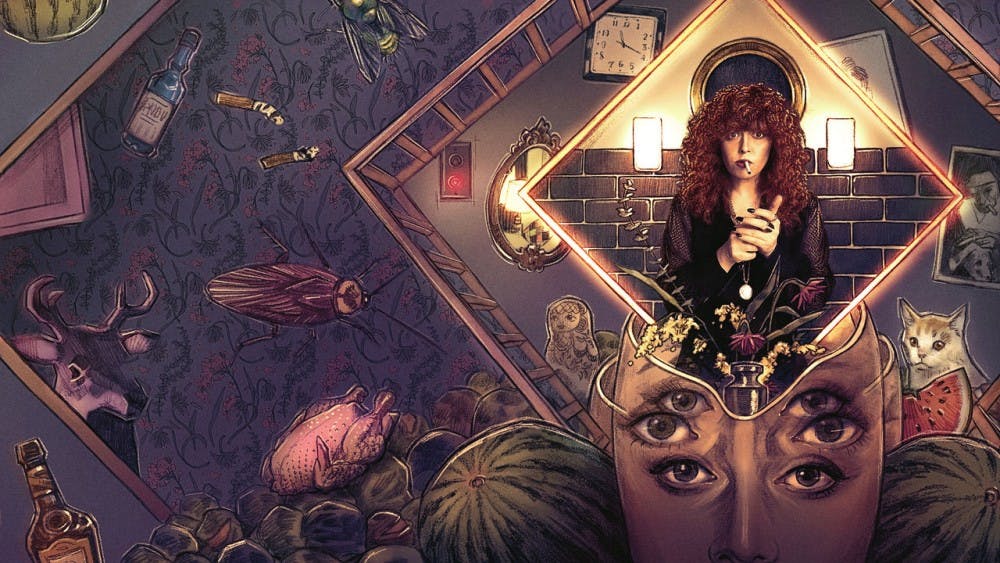I wish I had never seen the stylish and paradigm-shifting new Netflix original “Russian Doll” so I could watch it again for the first time.
It’s one of those shows where the less you know about it, the better. Even just the elevator pitch is intriguing: a darker, raunchier “Groundhog Day” set in modern Manhattan starring “Orange Is the New Black” standout actress Natasha Lyonne.
But the show is so much more than its premise. “Russian Doll” turns into a meditation on depression, the reverberations of trauma and what it means to be a good person, if that even matters anymore.
Lyonne plays Nadia Vulvokov, a software engineer who finds herself reliving the night of her 36th birthday party over and over again. Lyonne is dynamite in the show, and Nadia is a blazer-clad dynamo with a mane of red curly hair who dominates any room she steps into.
As viewers of “Orange Is the New Black” know, Lyonne is charisma incarnate. She’s an inextricable part of the charm of “Russian Doll,” and the show literally wouldn’t exist without her — Lyonne is one of the co-creators of the show alongside Amy Poehler and Leslye Headland.
The writing in the show is so clever that at first, it was a little off-putting. When characters are written to be overly witty, it can become grating pretty quickly.
But as the story continues, all that wit is eroded by Nadia’s genuine fear and confusion. That’s when the show gets good.
The show itself also looks gorgeous. Cinematographer Chris Teague has an eye for matching such a specific, complex tone to a look. He also was cinematographer for “Obvious Child,” a 2014 romantic comedy about an abortion that’s also a favorite of mine.
“Russian Doll” is rich and colorful in a dark way. It’s like light passing through the emerald green of a broken bottle on the side of the road. It’s like the figures in Edward Hopper’s classic painting “Nighthawks” got into ketamine — a substance that does indeed become relevant during Nadia’s boozy, drug-filled existential escapades.
“Russian Doll” is the newest entry in the category of modern comedies discussing larger, weighty issues of death, judgment and morality. Shows such as “Forever,” “The Good Place,” “BoJack Horseman” and, now, “Russian Doll” force their audiences to confront hefty questions as well as laugh out loud.
This brand of thoughtful, existential comedy focused on the nature of the soul and what makes someone a good person has emerged in recent media as a stand-out source for more thoughtful content.
Unlike “BoJack Horseman,” a show with a particular gift for making the viewer feel as hollow as its protagonist, “Russian Doll” ultimately offers up something that feels like hope.
As the season ends and Nadia’s story wraps up, the message is clear: maybe, despite everything, we can be OK after all.




